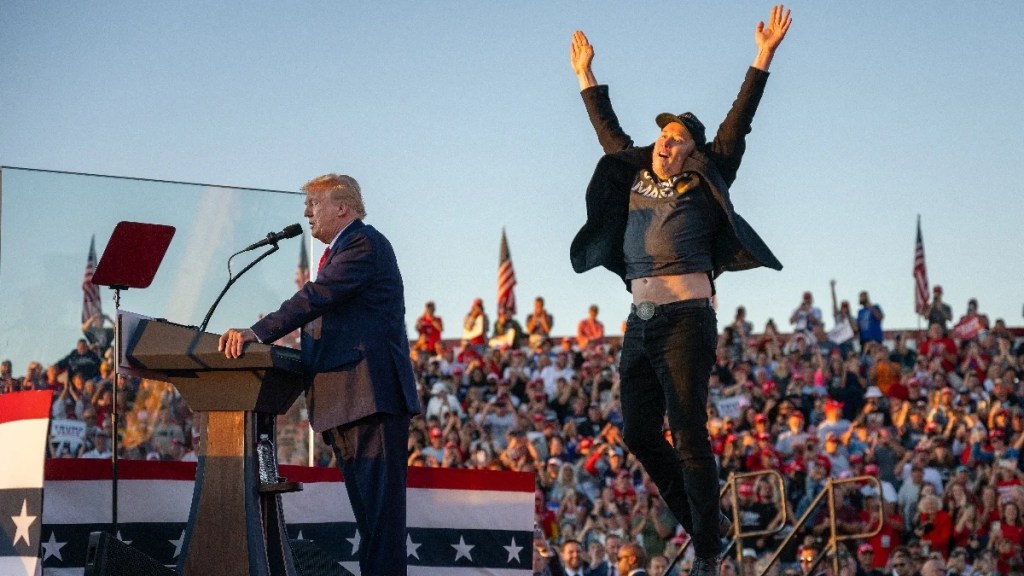Elon Musk made a notable appearance alongside Donald Trump at a rally in Butler, Pennsylvania, marking Trump’s return to the area where an assassination attempt had recently occurred. During the event, Trump highlighted Musk’s significance in shaping a promising future, noting his contributions to technology through Tesla and SpaceX, as well as his role in advocating for free speech after taking over X (formerly Twitter). Musk donned a black “Make America Great Again” hat and proclaimed himself as “dark MAGA,” expressing his unwavering support for Trump. His enthusiastic entrance was complemented by Trump’s praise, who described Musk as a great gentleman and an incredible individual who saved free speech.
Musk’s speech began with an acknowledgment of the audience and transitioned into a critical comparison of the current political climate. He referenced the resilience needed in leadership, saying, “the true test of someone’s character is how they behave under fire,” juxtaposing Trump’s reaction to adversity with that of other figures. Musk rallied the crowd by leading chants and imploring them to consider who they wanted to represent America, clearly endorsing Trump’s candidacy. He labeled the upcoming election as the most crucial of their lifetime, urging supporters to recognize its significance.
Central to Musk’s speech was a framing of Democrats as threats to fundamental freedoms, particularly targeting the rights of free speech and gun ownership. He claimed that the Democratic Party aimed to strip away these rights, leading to an environment where informed voting would be compromised. In his argument, Musk contended that without free speech, there could be no democracy, reinforcing why these rights were enshrined in the First and Second Amendments of the Constitution.
The rally took a definitive turn when Musk discussed voter ID laws, expressing disbelief at California’s decision to eliminate ID requirements for voting. He criticized this move as undermining the integrity of elections and brought attention to the challenges such policies impose on democratic participation. His arguments echoed a larger discourse among conservatives who view voter ID laws as essential for ensuring fair elections, even as there is a lack of evidence suggesting widespread voter fraud.
Musk’s interpretations prompted further scrutiny of the political narratives surrounding election integrity and voter rights. While he presented claims that aim to galvanize support for stricter voting laws, the broader context remains that federal regulations require voter identification at registration. Moreover, the assertion that Democrats seek to dismantle voting rights appears to be a tactic utilized by some Republicans to rally their base without acknowledging the complexities and nuances of voting legislation.
Lastly, Musk’s strong embrace of Trump’s ideology and his depiction of current political struggles as existential reflect a broader trend in American politics where prominent figures utilize their platforms to mobilize public sentiment. By framing the upcoming election as critical and positioning himself as a defender of American values, Musk sought to inspire action among the crowd, ensuring that both he and Trump resonate as champions of a particular vision for the future. The convergence of their ideologies at the rally emphasizes the growing intertwining of business and politics, highlighting the impactful role that personalities like Musk play in shaping the modern political landscape.

